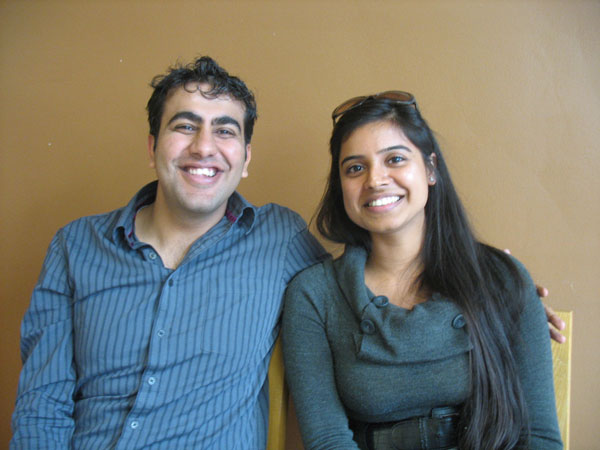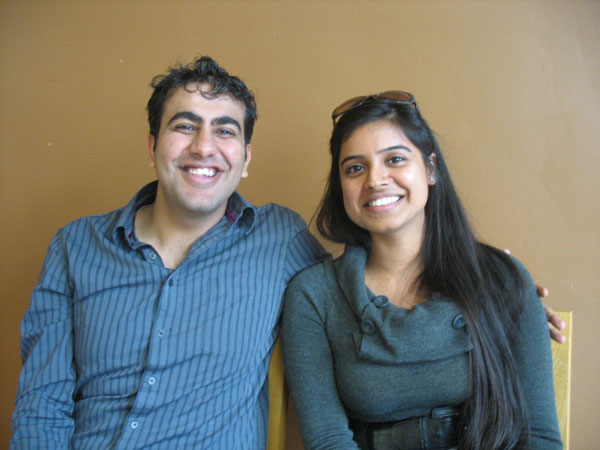Aparna Gill is a recent graduate of George Brown College’s (GBC) financial planning program. Everything was fine, until she got sick.
“It began in July with her (Aparna) feeling feverish and weak for a few days, so we went to a doctor just to consult. The doctor when touching Gill’s neck, found lumps, swollen glands,” explained her husband and GBC alumni Rohit Dua.
An ultrasound was performed and a mass was discovered. The next diagnostic step was to have a biopsy done. This is when problems with the insurance company began.
GBC’s insurance carrier at the time was RSA Canada (Royal & Sun Alliance) and its claims administrator company was Global Excel Management (GEM). This means that although premiums are paid to RSA Canada, you don’t deal with them directly at all. GEM is the entity that approves or denies claims based on RSA’s policies.
When Gill submitted the medical information and requested the first biopsy, GEM approved it. She was then informed by the specialist that it was cancer and that a second biopsy was required. She submitted the request again to GEM. This time she was denied.
Not only was it denied, but the only option left open for her as far as GEM was concerned was repatriation back to India for further tests and treatment.
Gill said, “I was given 24 hours to decide if I was going back to India. If I refused, my policy would be automatically cancelled. I had scheduled the second biopsy and also had my exams the following week.” Her husband added, “After paying all that money for her education we couldn’t just stop it all and leave.”
Gill and Dua have only been married since March. It was his suggestion to her to go to GBC. Dua is a permanent resident in Canada and has started the process of sponsoring Gill who is here on an international student visa. She isn’t eligible for OHIP coverage yet.
They were able to negotiate with GEM to get an extension to accommodate her final exams and decided to have the second biopsy done. Meanwhile, they appealed against the decision of the insurance claim company to repatriate her instead of staying here for treatment.
At the second biopsy there was good news and bad news. Cancer cells had not spread to her lymph nodes, but TB cells were present. Tuberculosis is one of the conditions that the province will treat for people without OHIP. Luckily, hers was not the communicable type as that would have raised more problems. Nevertheless, a TB diagnosis will not allow her to come back to Canada if she was to be repatriated back to India. Gill was worried.
She approached the International Student Centre (ISC) for assistance. John Porter, director of international admissions and student services, said, “The ISC and more particularly, the executive director of the Student Association — advocated on Gill’s behalf and intervened with the insurance company ombudsperson.”
With advice from the ISC and the Student Association’s (SA) resident lawyer Bill Reid, Gill drafted a letter to the insurance company describing the hardship a ruling of repatriation would have on her and her husband.
Gill wrote, “We had recently recently been married. My husband would have had to leave everything he had accomplished here and wrap things up, to come back to India with me. He would lose so much.”
The insurance company rejected her appeal.
The SA’s executive director, Antoinette Davis, then got involved.
“We had exchanged a number of emails with the insurance company and then they stopped responding. We escalated the case by complaining to the insurance company ombudsperson. After a review by the ombudsperson it was decided that she would be reimbursed for all costs until the end of August,” said Davis.
Dua points out how international students are really at a disadvantage, “International students are charged three times what domestic students pay, but there are not as much support as domestic student health wise. We don’t get OHIP coverage until three months of work and we can’t get our work permit until we have graduated and our grades and credentials are submitted. What happens if you get ill during the waiting period?”
“She has applied for jobs and has a letter of acceptance for a job at a bank, but she can’t take it until she gets her work permit and she doesn’t get that until after she finishes school and then she has to wait until she has worked for three months for OHIP,” said Dua. “So that means she can’t have surgery to remove the cancer until January the earliest. So what is she to do? She has applied for the work permit but now is waiting.”
After all of this, Gill and Dua laugh when speaking about it, “What can you do? Being upset won’t make things go quicker, so why not laugh?” said Gill.
Gill just got her reimbursement cheque from her insurance for the second biopsy and doctor’s visits. The international student centre is working on getting a rebate on her May to August fees from international to domestic fees due to her marriage while being a student. She is still waiting to receive her work permit, to begin work, and eventually to get OHIP and have the surgery.
Globel Excel did not respond to phone calls and emails. RSA said that due to privacy issues they could not talk about the case.
Oct. 30 Update: Aparna has received her work visa and will be starting a full time position at a financial institution in early November. She will be getting her OHIP coverage in January and plans to have the necessary surgery and begin treatments in the New Year.



